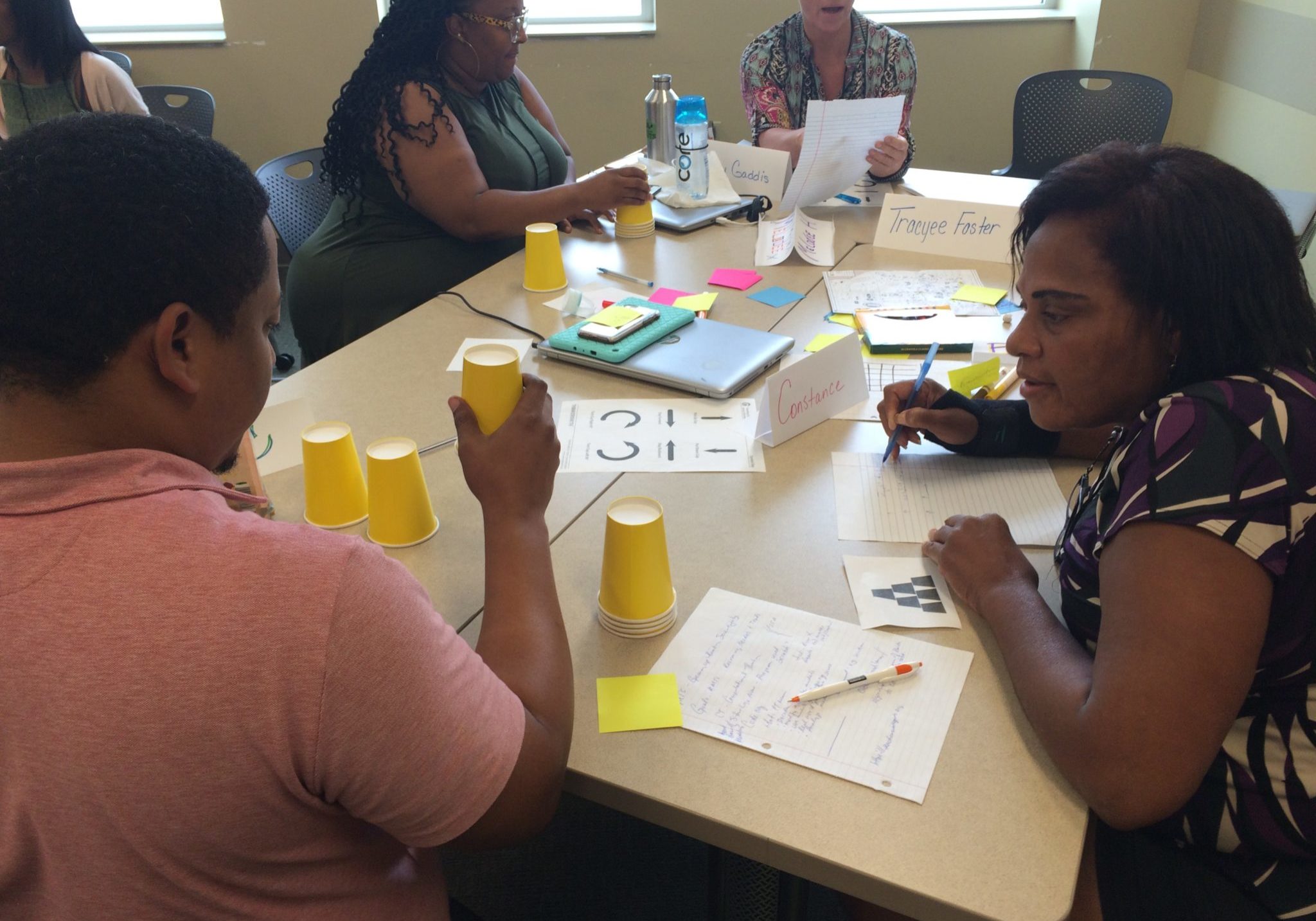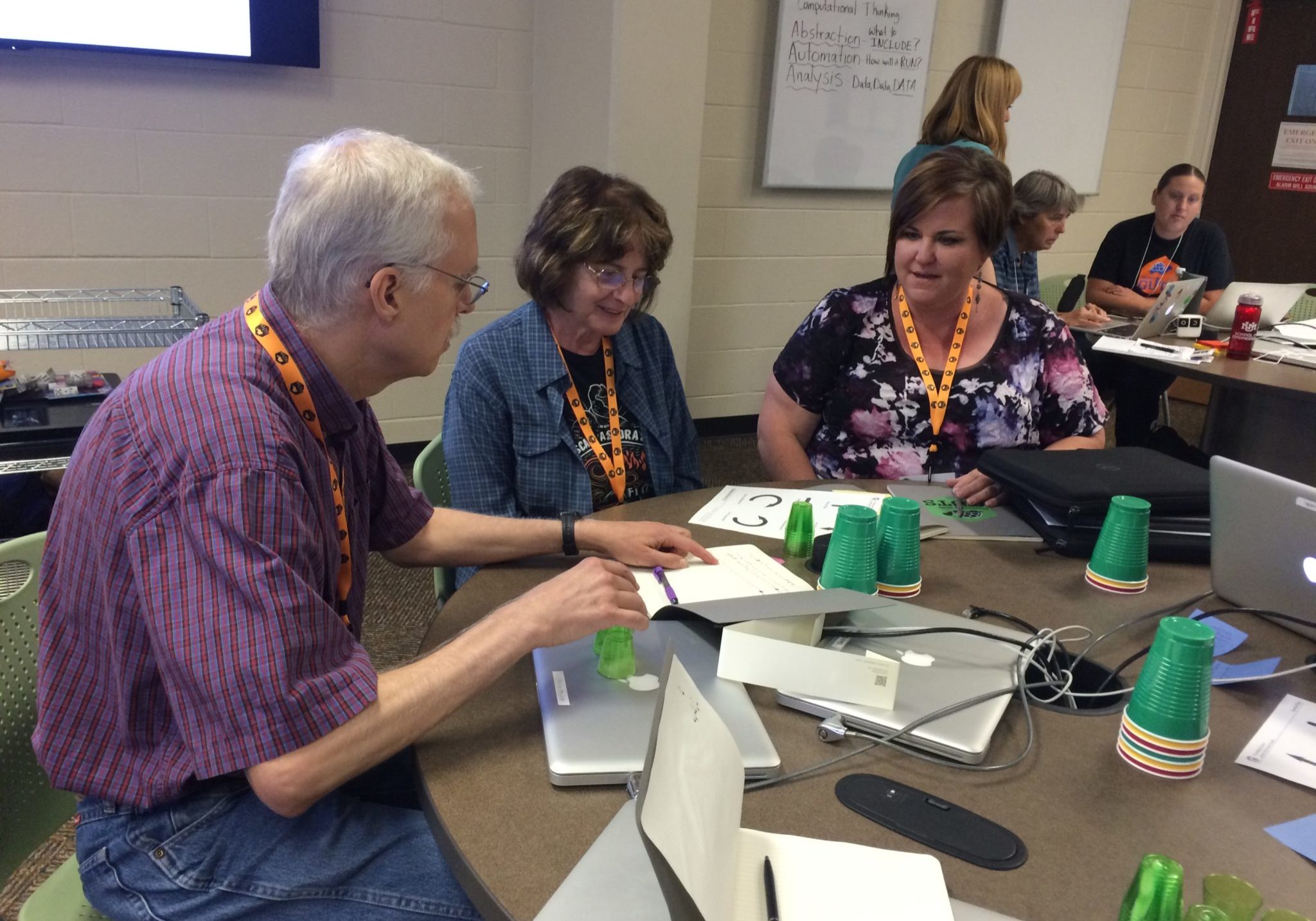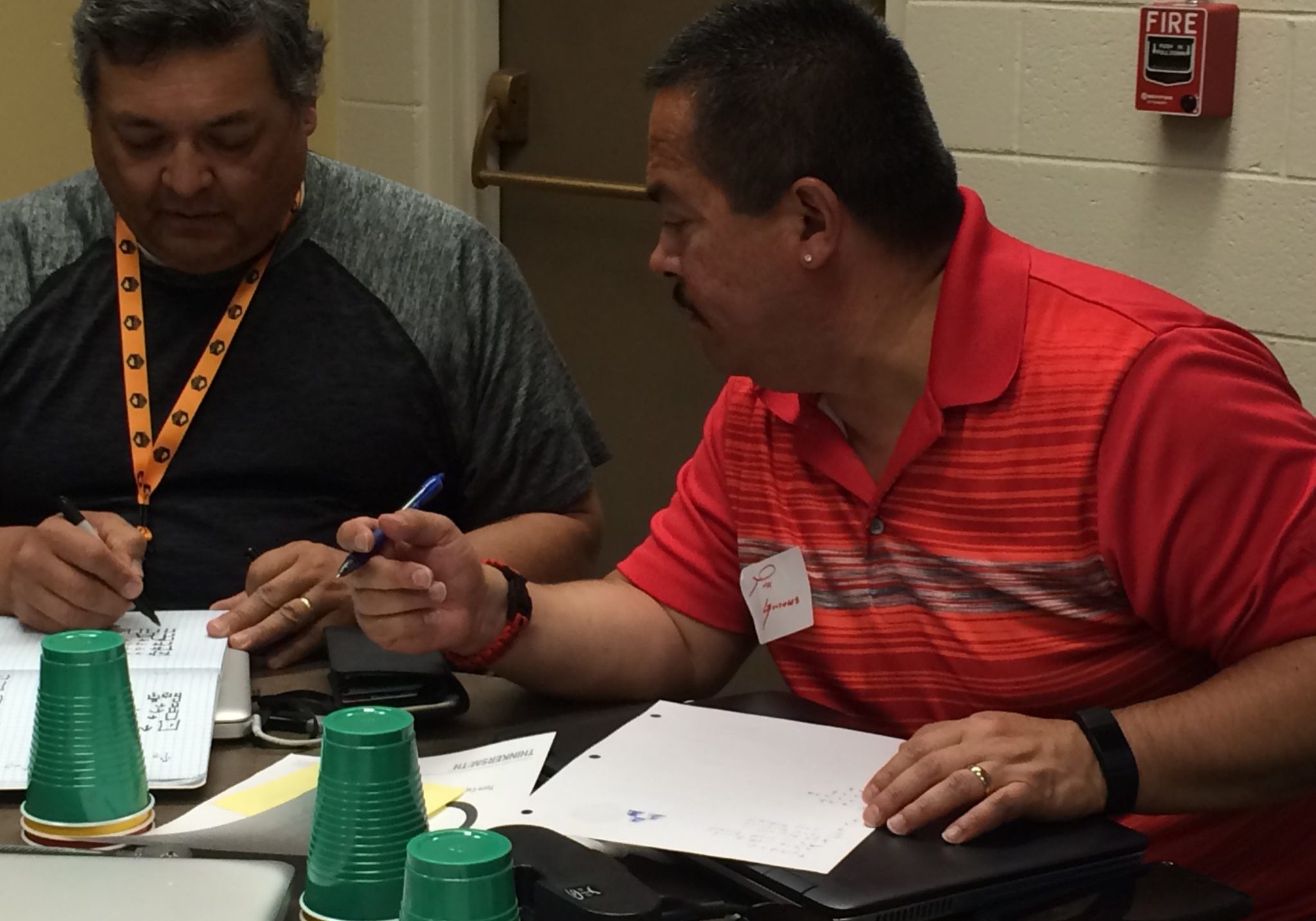Overview
Project GUTS’ mission is to prepare students for future endeavors in Science, Technology, Engineering, Mathematics and Computing by providing them with opportunities to build scientific inquiry skills and use technology to explore real-world problems. Project GUTS was designed for students from all different backgrounds to engage in scientific inquiry by investigating topics of interest to their local communities and sharing their experiments and findings in order to inform fellow students and community members.
The organizing framework for Project GUTS is the practice of scientific inquiry with agent-based models. The study of complex adaptive systems serves as a unifying theme for GUTS curriculum. Peer mentoring and community networks serve as project components designed to support students and teachers committed to teaching modern, computer-enabled scientific practices.

Research
Malyn-Smith, J., Lee, I., Martin, F. G., Grover, S., Evans, M. A., & Pillai, S. 2018. Developing a Framework for Computational Thinking from a Disciplinary Perspective. Computational Thinking in Education 2018 conference proceedings.
Waterman, K., Goldsmith, L., Pasquale, M., Goldenberg, E.P., Malyn-Smith, J., DeMallie, A., & Lee, I.A. (in press 2018). Integrating Computational Thinking into Elementary Mathematics and Science Curriculum Materials and Instruction. In Pixel (Ed.), Conference Proceedings: the Future of Education 2018. Florence, Italy: Libreria Universitaria Edizioni.
Malyn-Smith, J. and Lee, I. 2017. Profile of a CT Integration Specialist. CTE 2017 conference proceedings.
Lee, I., Psaila-Dombrowski, M. & Angel, E. 2017. Preparing STEM Teachers to offer Computer Science for All. ACM SIGCSE 2017.
Lee, I. & Martin, F. 2016. Computational Thinking. In Peppler, K. (Ed.), Encyclopedia for Out-of-School Learning. Thousand Oaks, CA: Sage.
Lee, I. & DeGennaro, A. 2016. Computer Science, Coding, and Project-Based Learning for Engineering Instruction. In Dailey, D. & Cotabish, A. (Eds.), Engineering Instruction for High-Ability Learners in K-8 Classrooms. Prufrock Press. Austin, TX.
Lee, I. 2016. Reclaiming the roots of CT. CSTA Voice: The Voice of K–12 Computer Science Education and Its Educators, 12(1), 3–4. Retrieved on 11-3-2016 from http://www.csteachers.org/resource/resmgr/Voice/csta_voice_03_2016.pdf
Lee, I., Martin, F. Apone, K. 2014. Integrating Computational Thinking Across the K-8 Curriculum. ACM Inroads 5 (4): 64-71.
Malyn-Smith, J. and Lee, I. 2012. Application of the Occupational Analysis of Computational Thinking-Enabled STEM Professionals as a Program Assessment Tool. Journal of Computational Science Education. 3 (1): 2-10.
Seehorn, D., Carey, S., Moix, D., Fuschetto, B., Lee, I., O’Grady-Cuniff, D., Stephenson, C., and Verno, A. 2011. CSTA K-12 Computer Science Standards. ACM/CSTA publications, New York.
Lee, I. 2011. Assessing Youth’s Computational Thinking in the context of Modeling & Simulation. AERA Conference Proceedings.
Malyn-Smith, J., Ippolito, J., Scott, L., Lee, I., and Wong, J. 2011. Progress Toward Defining Computational Thinking in the K-12 Experience. AERA Conference Proceedings.
Lee, I., Martin, F. Denner, J., Coulter, B., Allan, W., Erickson, J., Malyn-Smith, J., and Werner, L. 2011. Computational Thinking for Youth in Practice. ACM Inroads 2(1): 32-37.

